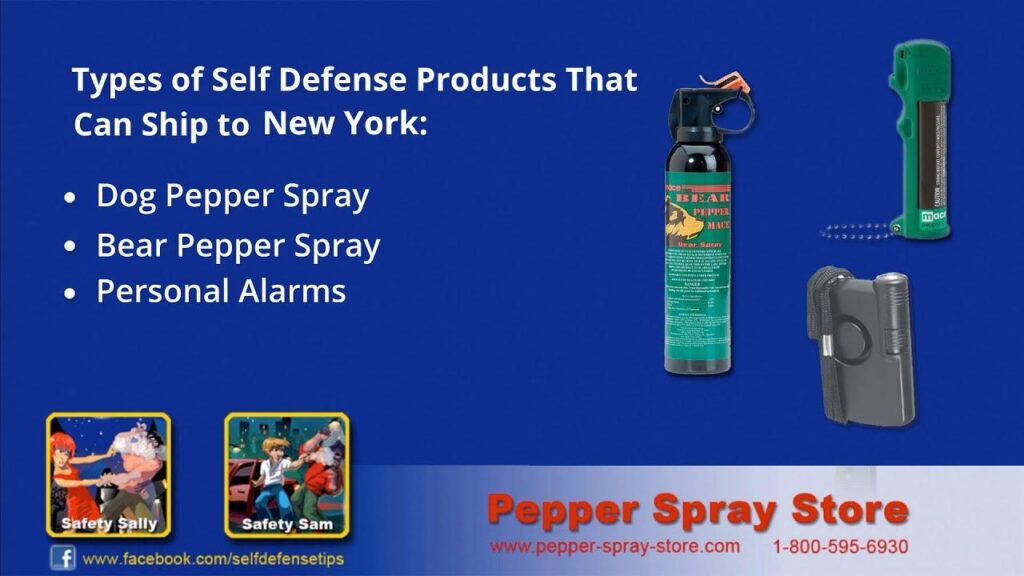Table of Contents
- Legal Criteria for Purchasing Pepper Spray in Retail Outlets
- Age Restrictions and Identification Requirements for Buyers
- State-by-State Regulations Affecting Pepper Spray Sales
- Best Practices for Safely Procuring and Using Pepper Spray
- In Summary
Legal Criteria for Purchasing Pepper Spray in Retail Outlets
When considering the purchase of pepper spray from retail outlets, it’s essential to be aware that legal stipulations vary significantly depending on the jurisdiction. Most regions enforce age restrictions, often requiring buyers to be at least 18 years old to legally acquire pepper spray. Additionally, retailers typically mandate a valid government-issued ID to verify the purchaser’s eligibility. These measures aim to prevent misuse and ensure the product is sold responsibly.
Furthermore, some jurisdictions impose specific limitations on the concentration and formulation of the spray, adhering to public safety regulations. Retail stores are obligated to comply with these standards, which may include:
- Prohibiting possession by felons or individuals with violent criminal records
- Restricting bulk purchases to avoid stockpiling
- Requiring instructional materials on safe and lawful usage
Understanding these legal boundaries helps both consumers and retailers promote safety and legality in the acquisition and use of pepper spray.
Age Restrictions and Identification Requirements for Buyers
When purchasing pepper spray, strict age requirements are enforced to ensure responsible usage. Most jurisdictions mandate buyers to be at least 18 years old, though this minimum age can vary slightly by state or country. Retailers are legally obligated to verify the purchaser’s age before completing the sale, making it imperative for buyers to present valid identification. Accepted forms typically include government-issued photo IDs such as a driver’s license, passport, or state ID card. Without proper age verification, stores are prohibited from selling pepper spray under local and federal laws.
Additionally, some regions may impose further restrictions, such as limiting sales to in-person transactions only or requiring buyers to sign a waiver acknowledging their understanding of the product’s intended use and legal implications. It’s important to note that online purchases often involve rigorous identity and age checks through digital verification tools or third-party services. To smoothly navigate these legal requirements, be prepared to show reliable identification and understand that age verification is a standard safeguard to promote safe and lawful acquisition.
- Minimum age requirement commonly set at 18 years or older
- Valid government-issued photo ID mandatory for purchase
- Some states require in-person sales only
- Buyers may need to sign legal acknowledgments
- Online sales involve stringent identity checks
State-by-State Regulations Affecting Pepper Spray Sales
When it comes to purchasing pepper spray, each state enforces its own specific legal framework that consumers must navigate. Some states require buyers to be of a minimum age, often 18 or 21, while others regulate the maximum concentration of active ingredients allowed. Additionally, certain states mandate registration of the pepper spray with local law enforcement or require purchasers to complete safety training before buying. It’s important to understand that these regulations are designed not only for consumer safety but also to ensure responsible ownership and use.
Key variations across states include:
- Age Restrictions: Some states enforce a strict minimum age, prohibiting sales to minors entirely.
- Spray Strength Limits: Regulation of the percentage of oleoresin capsicum (OC) allowed, with some states capping it at 10% or less.
- Quantity Limits: Rules may limit the amount of pepper spray one person can purchase or carry.
- Permits and Registration: Certain states require a permit or official registration for possession.
- Prohibited Locations: Regulations that restrict carrying pepper spray in public buildings, schools, or airplanes.
Best Practices for Safely Procuring and Using Pepper Spray
When purchasing pepper spray, it’s essential to adhere strictly to local regulations and store policies to ensure legal compliance. Always verify the product’s labeling to confirm it matches the authorized concentrations and ingredients permitted in your jurisdiction. Never buy from unverified sources, as counterfeit sprays may be ineffective or dangerous. Additionally, keep your ID handy when purchasing, as many establishments require age verification – generally 18 or older – before completing the sale.
Using pepper spray responsibly is just as critical as buying it legally. Practice proper handling by keeping the device accessible but secure, avoiding accidental discharge, and understanding your local laws regarding where and how it may be deployed. Regularly test expiration dates and learn self-defense techniques to complement its use effectively. Remember, pepper spray is a deterrent, not a weapon for offense – misuse can lead to legal consequences or unintended harm.
In Summary
Understanding the legal requirements for purchasing pepper spray is essential for anyone considering it as a means of personal protection. By staying informed about age restrictions, necessary permits, and state-specific regulations, you can ensure that you’re acquiring pepper spray safely and legally. Always check your local laws before making a purchase, and remember that responsible ownership is key to using pepper spray effectively and ethically. Stay safe and empowered!Check Our Other Blogs
- StunGun – Your Trusted Source for Stun Guns, Laws, and Self-Defense Tips
- PepperSprayLaws – Your Trusted Resource for Pepper Spray Information
- StunGunLaws – Your Trusted Guide to Stun Gun Legality and Safety




